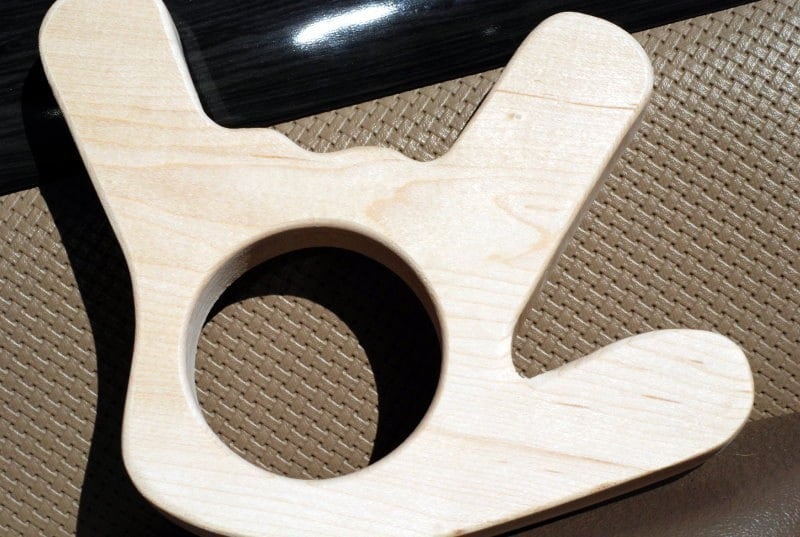When I was younger, my aunt taught middle school special education at a school that put their deaf children in special ed. She was angry, furious actually. She ended up developing a separate curriculum for those students, making sure that they were treated just like any other student in the school would have been, and started teaching me sign language. I would visit her classes as a 4-year-old and sign with the deaf children, and according to my aunt, they looooved me :-)
Anyways, years later my aunt was dying of cancer and in the hospital more often than not. She would often have feeding tubes or other implimements that made talking impossible or just too painful. I would sit in her room with her, and she would sign with me, telling me what she needed and relaying messages through me to her doctors and nurses. It was incredibly painful to watch this strong woman who had taught special ed and advocated for HIV patients' rights go through so much hardship, but I was always glad to be helpful.
My aunt's hebrew name was Alitza. My daughter's middle name will be Alitza.
Since Laura's passing I haven't had anyone to speak with in sign, so lately I've started teaching my husband sign language. He already knew a couple signs, like hungry, so that I didn't have to interrupt his conversations. Now we're working on the alphabet and key terms.
From the day our baby is born, we plan on speaking to her in sign language as well as in spoken language.
Yes, I've heard of the baby sign fad that's going around right now, and as much as I'm all for it, I find that most parents stop signing as soon as the baby can speak, and the skills are quickly lost. Continuing to sign is not only great for hearing children (it functions like a second language and it increases spelling ability by including a movement with letters) but it is great for the deaf community.
Also, if we decide to have more chldren, J and I are planning on adopting deaf children. Deaf children are more likely to be put up for adoption, languish in the foster system, or be abused by hearing parents, relatives, and strangers. Deaf children also typically suffer because of the common misconception that they have learning disabilities or just can't learn as well. I hope to help change this, at least for one child.
There is a pilot for a new show that was recently posted on youtube. The show would focus on families where the parents are disabled in some way. Their intention is to show that people with disabilities can be great parents and that the common misconceptions are completely false. The pilot features a deaf family of 6, where the parents and two of the children are deaf, and two of the children can hear. Here's the video. It made me cry a little.


Brilliant! I learnt Australian Sign Language a few years ago- it was something I always wanted to do- and I'm amazed at how often I use it in everyday life. I'm signing with my kids too.
ReplyDeleteI'm so glad to hear it! I think i'm going to have to look up the differences between Australian and American. How do your kids like it?? I heard that it's great for shy kids who might not want to ask certain things in public or in front of other people (like saying that they have to pee or something).
ReplyDelete